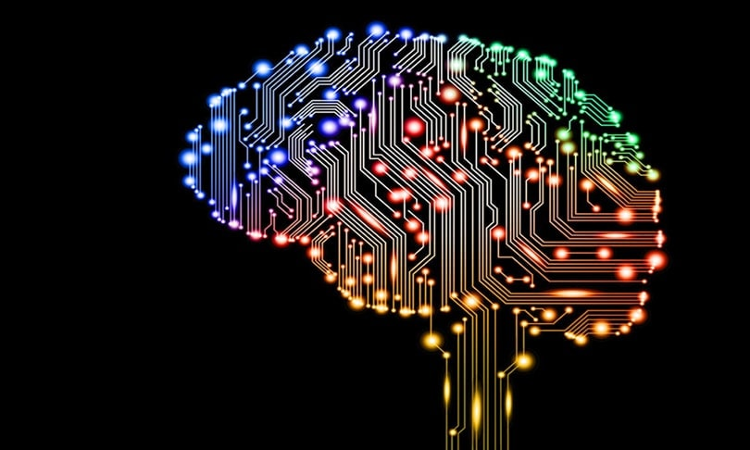Rebooting Justice: Technology As A Catalyst For Change In The Legal System
Siddharth Aiyar
31 Aug 2024 10:34 AM IST

The Indian legal system plays a vital role in ensuring justice, but it's facing serious problems that make it hard for people to trust and access it. One of the biggest issues is the enormous backlog of cases. As of 2024, about 3.5 million cases are still stuck in the courts, waiting to be resolved. This backlog has built up over time because there simply aren't enough judges, and the legal process is slow and often complicated. These delays hit poorer and marginalized communities the hardest, as they often lack the resources or knowledge to navigate the legal system. For them, the idea of getting justice can feel out of reach, and dealing with the legal process can be overwhelming. Finding ways to tackle this backlog is crucial to restoring faith in the judiciary, and technology could offer some promising solutions.
One idea is to use artificial intelligence (AI) to handle minor cases, like traffic violations or simple civil disputes, which make up a large chunk of the pending cases. AI can use advanced algorithms and machine learning to analyze legal data and predict outcomes based on established precedents. While AI cannot fully replace human judges, it can assist in specific tasks such as reviewing documents and formulating decisions
Aside from the backlog, another big challenge is the complexity of legal procedures. Many people find the legal system confusing and time-consuming, which often leads them to hire expensive lawyers—something not everyone can afford. Simplifying these procedures is key to making the legal system more accessible to everyone, regardless of their financial situation or education level. Digital platforms could play a significant role in this. For example, the eCourts project, which is working to digitize court processes, could make it easier for people to file cases and access information online. By cutting down on paperwork and simplifying the process, these digital tools can make the legal system less intimidating and easier to navigate.
In addition to streamlining procedures, technology can also help empower people by giving them the knowledge they need to engage with the legal system confidently. AI-driven platforms, for instance, could provide legal education and guidance, helping people understand their rights and the steps involved in pursuing legal action. This could be especially helpful for those who are unfamiliar with the legal system or who might be hesitant to engage with it out of fear or uncertainty. By making legal information more accessible, these platforms can help ensure that more people have the opportunity to seek justice.
Corruption is another serious issue that undermines trust in the legal system. The complexity and lack of transparency in legal procedures often create opportunities for misconduct, whether through bribery, favoritism, or other unethical practices. Addressing corruption is essential for restoring confidence in the judiciary, and technology can be a powerful tool in this fight. Digital case management systems, for example, can create transparent records of all actions taken during the legal process, making it much harder for corrupt practices to go unnoticed. These systems can also improve accountability by allowing greater oversight of judicial actions.
Moreover, blockchain technology, which provides a secure and unchangeable way of recording transactions, could be used to enhance transparency in legal proceedings. By recording legal agreements and court decisions on a blockchain, the integrity of the legal process could be protected from tampering or manipulation. This increased transparency could help rebuild public trust in the legal system, as people would feel more confident that their cases are being handled fairly and honestly.
Resource limitations also play a big role in the inefficiencies of the Indian legal system. Many courts still rely on outdated technology, lack proper facilities, and don't have enough staff, all of which contribute to delays in handling cases. Investing in modern technology and better infrastructure is crucial for making the judiciary more effective. For instance, equipping courts with advanced case management systems could help streamline operations, allowing for better resource allocation and quicker resolution of cases. Additionally, increasing the number of judges and support staff is essential to managing the growing caseload. Technology can assist by automating routine tasks like document review and case scheduling, freeing up human resources for more critical work.
Restoring public trust in the judiciary isn't just about making the system more efficient; it's also about making it more transparent, accessible, and responsive to people's needs. Many people are reluctant to engage with the legal system because they find it too complex, intimidating, or corrupt. Technology can help bridge this gap by providing accessible legal information, simplifying procedures, and enhancing transparency. Public education initiatives that use digital platforms can inform citizens about their legal rights and how the judicial system works, making it easier for them to seek justice. Additionally, transparency measures, like publicly reporting on judicial performance and ethical standards, can help rebuild confidence in the system.
In summary, the Indian legal system is facing significant challenges, including a massive backlog of cases, complicated procedures, corruption, and resource limitations. However, by integrating technology into the legal framework, these problems can be addressed more effectively. Using AI to handle minor cases, simplifying legal procedures through digital platforms, promoting transparency with blockchain and digital records, and modernizing court infrastructure are all steps that can make the legal system more efficient, accessible, and just.
By embracing these technological innovations, India has the chance to create a legal system that better serves its people and restores their faith in the judiciary as a fair and impartial institution. Ultimately, a more efficient and transparent legal system will strengthen the foundation of democracy and ensure that justice is delivered fairly and promptly to everyone.
Siddharth Aiyar is a fourth-year law student at NLU Odisha. Views Are Personal


